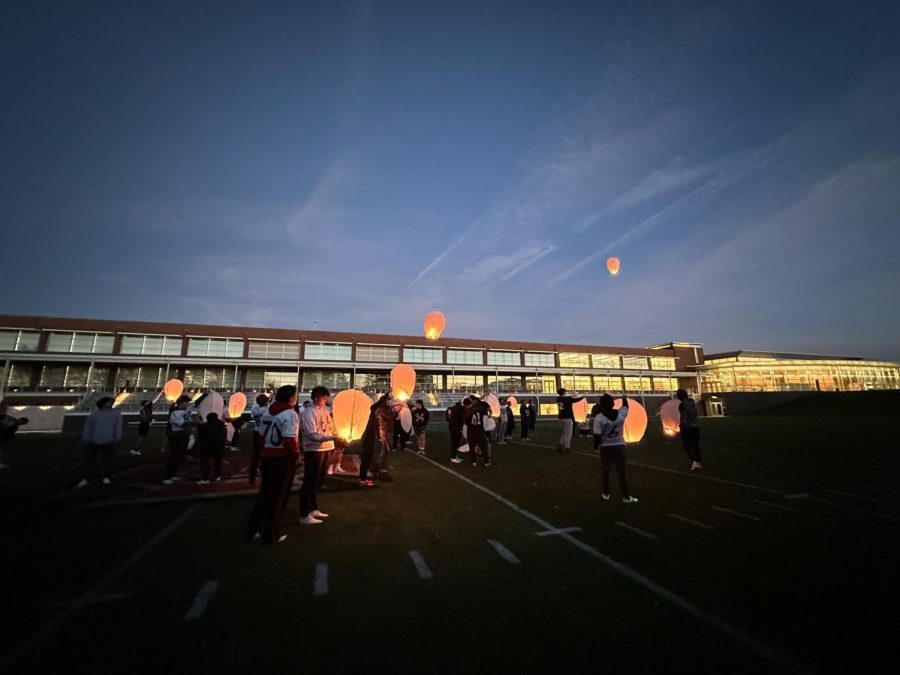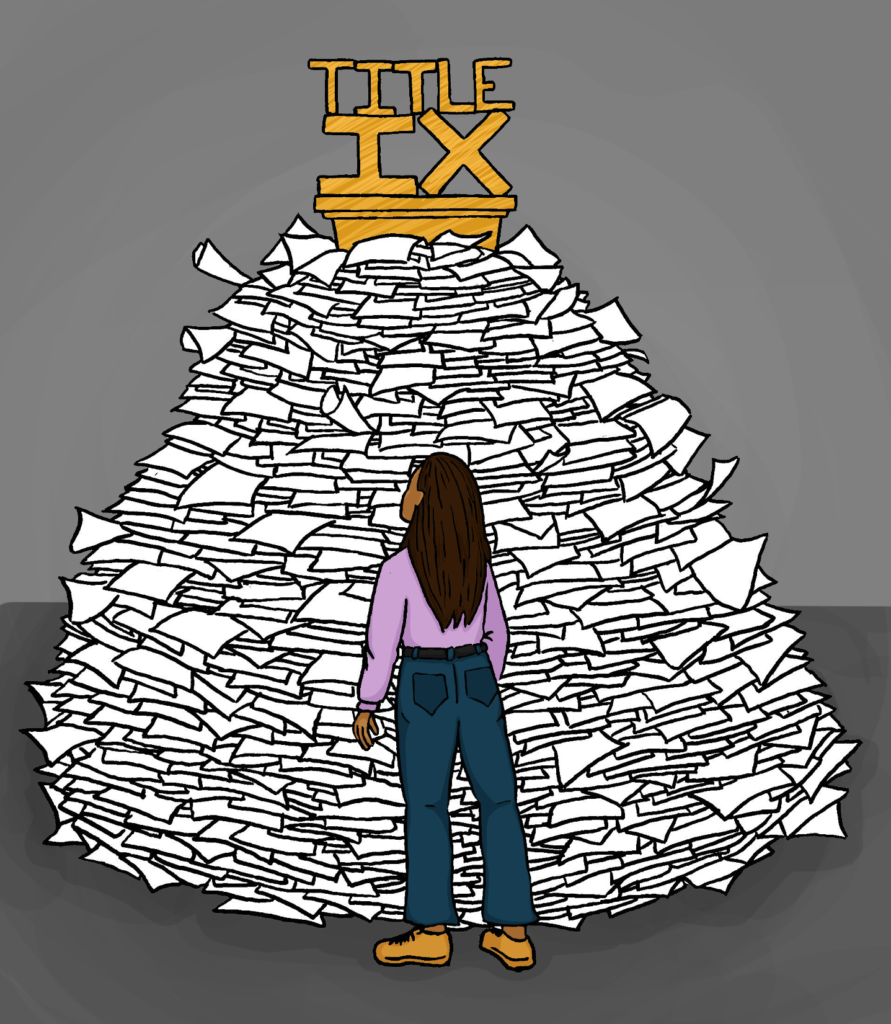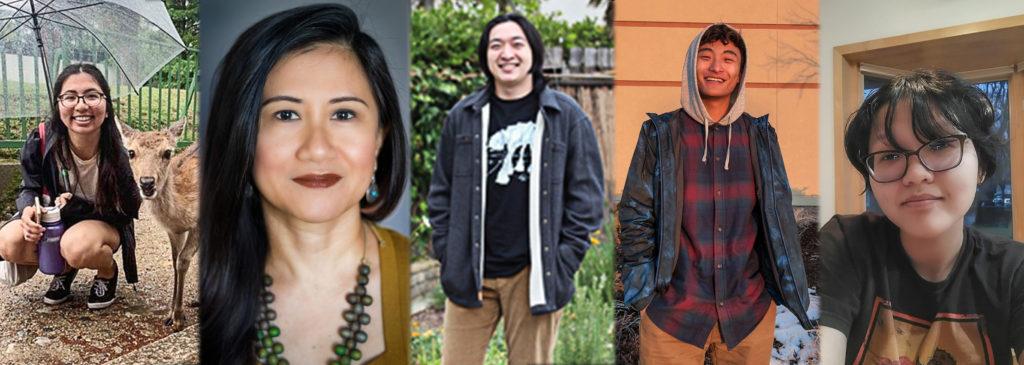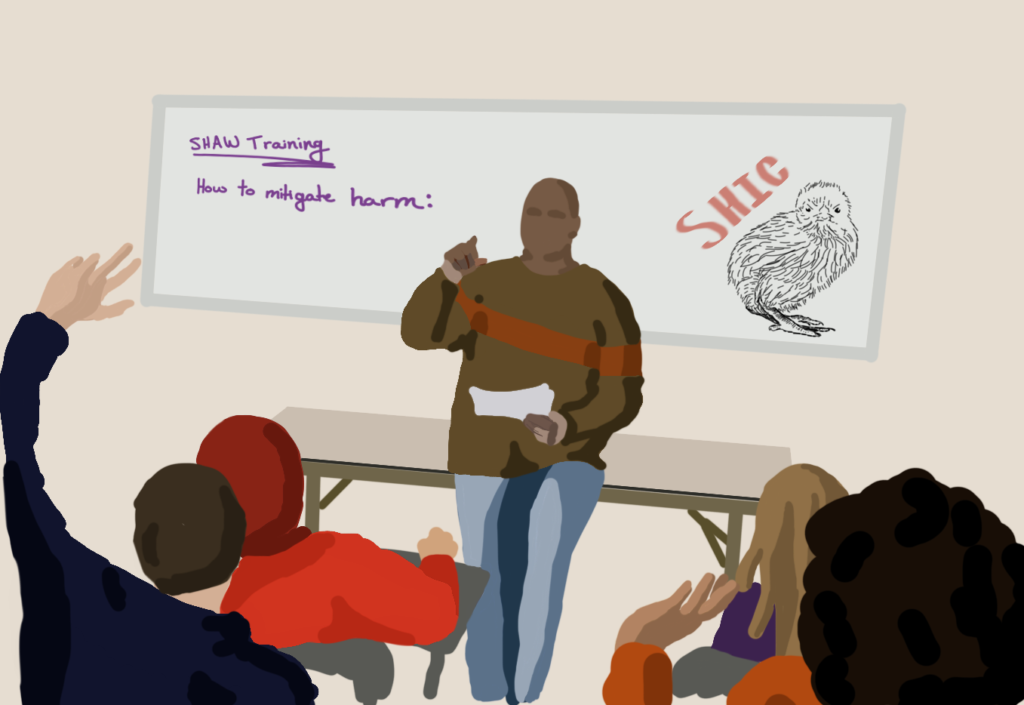On Facebook, a group has developed with implications that often spill beyond the internet: Grinnell Thumbs Down (GTD). The group exists for Grinnellians, past and present, to express grievances related to the College. Some posts venture into humor, while some have generated polarizing reactions from members, leading to call-outs on oppressive behavior, bans and reactions from the College administration. Such occurrences have made GTD infamous, but nevertheless an integral part of the Grinnell College experience.
Origins and growth
Grinnell Thumbs Down started with Shida Jing ’19. He wanted to create a place where students can hold critical and non-sanitized opinions of the College. For him, conversing on the internet lowers self-censorship, a tendency he says occurs frequently in real life.
“From personal experiences I think it’s really dangerous for a group of people to have a collective sense of satisfaction towards their governing body. … Regardless of how [the governing body] is doing its job, it’s dangerous for us to constantly feel like it’s satisfactory,” Jing said. “I am frustrated that we don’t have a way to collectively criticize what’s going on in the school.”
Jing never expected GTD to grow exponentially, but the fact that membership now exceeds 1300 Facebook users reveals that students want to participate in critical discussions about their College experience. With membership nearly as large as the student population, Jing anticipated GTD to unravel tensions among the campus and heated discussions, but he did not anticipate the harm it has brought to members. As the internet lowers pressure to act a certain way, people can also use it as a tool to disrespect others.
“[GTD] is not for you to hurt other people, let your anger out… What I meant is, it’s a way for you to say the things you don’t like about the place you are in, to express your opinions,” Jing said.
Jing gave up an administrative role in fall 2017, when a post calling out sexual assault led various members to approach Jing and ask for him to take action against the accusers and accused. On top of it, Jing claimed that during the sexual assault allegations, members of the administration approached him to convince him to either delete the group or hand over control to Student Government Association. He could not recall the administrators’ names, and is not sure if they are still a part of the College.
Feeling uncomfortable and unqualified to rule on matters regarding sexual assault, he chose three new moderators who came from different backgrounds yet seemed able to handle the group in ways that he could not. Of the three, only Carrie Stallings ’19 remains. Jing now occasionally posts in the group, but for the most part is not involved in GTD.
“I think in regards of handling conflict I think I’ve definitely learned that I should put less of my personal preferences and opinions into deal with conflicts of two parties I think I should stay neutral,” he said.
The heated moments
In recent months, the group has experienced an increase in the banning and removing of members when they appeared to violate the group’s civility rules. Rhonda Stuart ’86 was banned from the group by an admin who claimed Stuart attempted to undermine a student’s experiences regarding an instance of racist language in the classroom. Reactions from other alumni and current students led some group administrators to ban more members.
The ensuing reaction represented to Stuart an unavoidable consequence of internet groups.
“I understand rules are intended to make the conversation more civil but it does not always turn out that way,” said Stuart “Sometimes there is authoritarianism in the way that the rules are enforced. People overlook things that their friends say when admins or are harsher on other people because they simply don’t like them. But … again, that’s the limitation of the medium. You’re free to participate or leave, you’re always free to start your own group, so to that intent it doesn’t really bother me. … this group will have to work out its own dynamics.”
Stuart serves on the Alumni Relations Council, a volunteer group dedicated to alumni outreach to current students and the administration, and has a child currently attending the College. She claimed GTD has made her role as an advocate for current students possible as she can pressure the College to take certain actions, or simply offer resources to students with complaints and concerns. For instance, Stuart raised money to replace the stolen money from SHIC, but could not have done that had she had not heard of the issue.
In light of the situation regarding GTD, Misha Laurence ’18 stepped down from his admin role.
“It’s that I left the group in an attempt to diffuse the conflict and let other students speak. I’m not lying about this to cover my ass; that’s honestly why I did it. I don’t like seeing people hurt,” wrote Laurence in an email to The S&B. He declined to comment further.
The Discourse that’s not Really Discourse
GTD’s most famous rule seems like a catch-22: no discourse. However, as people’s posts often relate to their identities as experienced in the College, inklings of discourse are unavoidable.
Eli Calalang-LaCroix ’21, a GTD member, has a loose definition of discourse that at least includes having discussions on issues in the abstract and producing some type of resolution. Regardless of what it truly is, he says at times, the conversations held in the group do not reach the group of people who have relevant identities to the matters discussed.
“It would be nice to … if there would be allowed for a system … taking care to prioritize voices of oppressed people, which gets tricky ‘cause oppression Olympics is shitty, but often times there are identities more relevant to the topic at hand,” said Calalang-LaCroix. “It’s not any worse to have a discourse group than to have a group that turns into arguing, so if we’re going to say no discourse, then we should shut down any threads with any arguments…I think it’s hypocritical to allow arguments about discourse but also we use discourse is such many different ways.”
Stallings echoes similar sentiments of the group’s struggle with discourse that dissolves into arguing instead of discussion. She became an admin because of the intersections of her identity and continues to be a one despite the emotional drain it poses. Though the group does include large members of the student population, Stalling believes that the voices of marginalized identities often are talked over, ignored and disrespected.
“What discourse should be and what is often labeled as discourse are often two different things, I believe. Discourse is when you have a conversation for the sake of learning and challenging your perspectives … However, I find that often what people call discourse within the Grinnell community is actually just a conversation in which people who are unwilling to learn and change their minds attempt to demonstrate to the other person they are entirely wrong or that their opinions have no value,” wrote Stallings.
“I definitely think often the people who speak in GTD, especially the more harmful content, are people who are socially privileged enough to do so, who feel that they will face little consequence,” Stallings added.
So what is GTD now?
Though not having an explicit mission, GTD still represents a space in which the rosy idea of the College and students is muddled. To Stallings, the “Grinnell bubble,” a colloquial term to describe that the College community is monolithic in its ideologies and student body, does not exist.
Stallings also highlighted that for students with marginalized identities, the hurtful implications in these posts are not actions that can be easily brushed aside, they are attacks on their very belonging at this institution.
“Perhaps the most appalling thing is to consider that people think these issues are equally sided; that within a space like GTD when we make claims and embarrass and blame one another, and that we all have the same amount of things at stake and that’s not true. There are students of color and women and poor students and first gen[eration] students and other marginalized people who already struggling with their sense of belonging at this institution who read this content and engage with it and they don’t just get mad,” Stallings wrote.
Looking forward
All interviewees agreed that GTD must continue to exist and remain out of the College’s control, and it seems that the College administration for the time being is not interested in taking control of GTD. Unlike the administrators that allegedly approached Jing, Associate Dean of Students Ben Newhouse believes that it would defeat the purpose of GTD to have it influenced by the College. Newhouse claimed that the only time the College would get involved in GTD and other Facebook groups would be when issues that harm students arise. Newhouse joined the College earlier this year and has no idea which of his colleagues or past administrators could have contacted Jing.
“I think these groups have success and momentum because they’re student lead and student spaces there’s a reason why we don’t insert ourselves in them … and that’s okay. I think this is part of our learning experience in how to engage with one another in a productive fashion that reacts to one another in a space that’s largely unregulated, but reflects the kind of dialogue that we’re capable of,” said Newhouse.
He also said he hopes that as students criticize the College among themselves, they can eventually feel comfortable to approach admin with their concerns.
“I think there’s a reason students are drawn to those sites … sometimes you just also need to vent about a place that you call home and that can be healthy too. … I’ve always said you can always love your college and not be in love with your college, because you love your college you can also be critical about [because] you’re so invested in it being its best version of itself and you know it’s full potential,” Newhouse said.
In terms of creating a more fulfilling and respectful environment for GTD, Stallings reached out to Regina Logan ’20, SGA diversity and outreach coordinator (DOC), to seek guidance on how to best handle GTD. The meeting coincided with Logan’s goal as coordinator to make SGA available as a resource to moderators of Grinnell-oriented facebook groups. To Logan, moderators and admins are also student leaders as they deal with the student body, even if not directly on campus.
“I think [SGA] is uniquely connected to resources, and one of our jobs is we support students,” Logan said. “In my role, it’s kind of unique as the DOC I do have a particular eye out for bias related discussions incidents, … so one of the reasons I tried to say plugged into social media is I think these online forums bring out things that people don’t always formally report or random concerns that people might not know if it’s big enough to file a bias related incident or whatnot. So I think Facebook conversations are the same way on having the pulse on what are the campus conversations the same way students feel what’s happening, what can I do to support.”
As a concession towards improving GTD, Stallings, with Logan and SGA and the wider Grinnell College administrative community, have considered involving conflict resolution training for future admins of the page. Stallings does not intend to further moderate the page and has initiated elections for replacement group admins. The elections for GTD admins are still ongoing but whatever the results, the group will certainly remain a fixture of the Grinnell College community.
“I think… there is a gut reaction to … think [GTD] is a negative toxic space … as I was getting ready for my role this semester … I wanted to move away from a lens of [GTD] is a negative group that needs to be stopped that needs to be shut down. It’s time for us to recognize that we live in a digital age, that there’s an extension of our campus community online and we have to face new challenges there. There’s not really a protocol of what it means to be a a self-governing Grinnellian online, and I think students are figuring that out,” Logan said.
























































